Burkina Faso
In Burkina Faso's capital, many ride their motorcycles every day to commute, go to school or move around the city.
In 2020, nearly one Burkinabe in seven owned a motorcycle.
the vehicle is also a tool of emanci'pation, For women like Valérie Dambré
"This defines the Burkinabe woman, the courage of women. In fact, riding a motorcycle demands courage," the motorist.
When Nigerian filmmaker Kagho Idhebor first came to Ouagadougou he was blown away by how many women whizzed about on motorcycles. So much so that he directed "Burkina Babes", a documentary on that. It even ran at Africa's largest film the FESPACO, the pan-African cinema and TV festival of Ouagadougou.
"I have been to couple of parts of the world and even in Nigeria you see a lot of motorcycles, guys driving motorcycles but I have not seen women in the last country driving motorcycles with so much attitude and very independent and that captivated me, like I was blown away!," the man in his thirties exlaims.
Since 1977, the Women's School for Skills Initiation and Training is based in Ouagadougou. It has trained over 700 women to be mechanics and bodywork repairers.
Trailblazers
"In the coastal countries (in West Africa), people went straight to cars" from walking or using bicycles, said anthropologist Jocelyne Vokouma. "But we (in Burkina) turned to motorbikes before using cars."
The key period of change was the early 1990s, she said.
Until then, "a woman would proudly say that her motorbike had been bought by her husband. 'My husband is doing OK,' was what women used to say," Vokouma revealed.
But the country went through wrenching austerity and many men lost their jobs.
Women then picked up the baton, setting up small businesses such as selling fruit and vegetables to make money -- and as time progressed, many used their savings to swap their bicycle for a motorbike.
With that came greater freedom, in developing their business, taking the children to school, seeing friends or just going out for a ride.
But, said Vokouma, some important seeds had already been sown by Burkina Faso's revolutionary leader, Thomas Sankara.
During his four years in power in the 1980s, which ended traumatically with his assassination, Sankara "played an emancipating role, breaking down traditional mindsets and thrusting women into the public space, outside the home," she said. "Young women today were brought up on his ideas."
Training
With the mobility women gained, came an entry for them into the male-dominated business of auto maintenance. But prejudice endures.
"You see men who do this, other men try to discourage you, they say: "You, woman, why do you come here to do this, it's a man's job, why do you come here, your place is in the kitchen, in the office", but why not me too? I can do better than that, yes."
"I was pushed by the promising trades were poorly distributed between men and women," says school founder and CEO Bernard Zongo.
"So we had to work to get women into non-traditional trades so as to ensure that women were also economically autonomous."
He hired a full-time woman psychologist and installed a nursery for students with babies.
The two-year course costs 100,000 CFA francs ($163), a hefty sum in a country where annual per-capita income is little more than $900.
In addition to the fees, the centre gets by through donations from NGOs, which account for 75 percent of revenue.
Other African countries, including Niger, Ivory Coast and Mali have sent representatives to the CFIAM to see how it operates, and "boys are asking to enrol," Zongo said with a smile.
"There are people we know who are jealous of us," said one student, Salamata Congo, speaking above a racket of cutting and hammering.




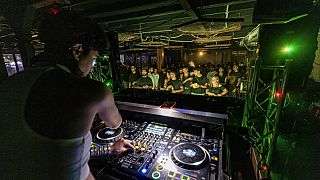
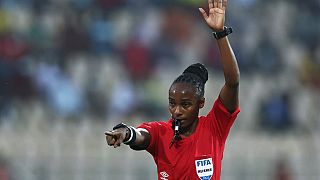
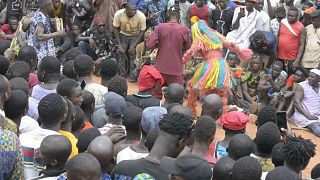
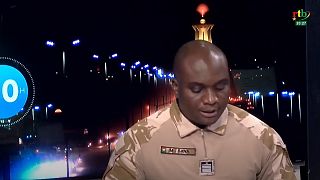
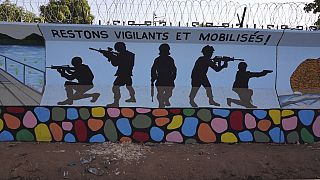



Go to video
Equatorial Guinea secures investment-grade rating — But for how long {Business Africa}
02:15
Catholic women strike against the "glass ceiling" in the Catholic Church
Go to video
Sahel alliance recalls ambassadors from Algeria over Malian drone downing
00:52
Burkina Faso denounces fake massacre videos
02:20
Human Rights Festival highlights global efforts and Fulani struggles
00:55
Niger withdraws from the International Organisation of La Francophonie